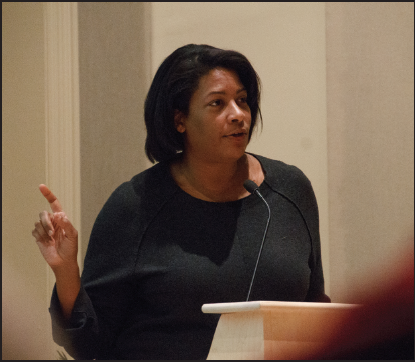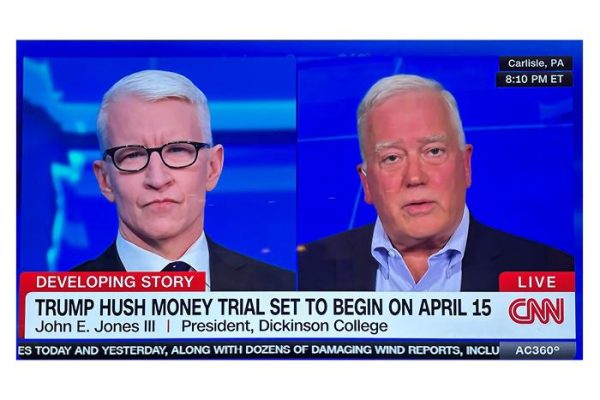MLK Symposium Sparks Dialogue

Dawn Porter, lawyer and director of “Gideon’s Army,” spoke as part of the MLK Symposium.
A presentation of pie charts and clips from the 2013 documentary “Gideon’s Army” revealed to students that racial and social discrimination in the judicial system is real.
A lawyer and the film’s director Dawn Porter discussed criminal defense of America with a small audience of Dickinson students on Thursday, Feb. 6 in the Stern Great Room. The Office of Diversity Initiatives (ODI) sponsored Porter’s presentation as part of Dickinson’s fifth annual Martin Luther King Symposium.
The documentary, produced by HBO and screened last January nation-wide, follows the experiences and trials of three Public Defenders in America. The screening and following discussion were centered on the theme of this year’s symposium: Mass incarceration and the racial disparities in the United States criminal justice system.
“The goal of the symposium is to continue the vision of [Martin Luther King] in a modern context, and provide a platform for students to recognize injustices and take action in helping solve them,” said Frank Williams III ’15, who works for the ODI.
Porter spoke about her realization of just what it meant to be a public defense lawyer in the Deep South.
“Public defenders believe in a more client-centered representation than other lawyers,” explained Porter in her talk. However, when she presented a comprehensive view of the public defense sector, the crowd murmured uncomfortably.
As Porter’s presentation explained, half of the US Federal Prison population is incarcerated for drug offenses. Of that half, 40.7 percent were African American.
“Most African Americans are arrested for possession, though they’re less likely to use them,” said Porter. She insinuated that along with class and financial standing, she found that racial minorities relied more heavily on public defenders as the last thing standing between them and a felony conviction.
“Our goal is to give students the chance to really digest this issue,” said Williams. “The mass incarceration of specific groups cannot go unnoticed.”



